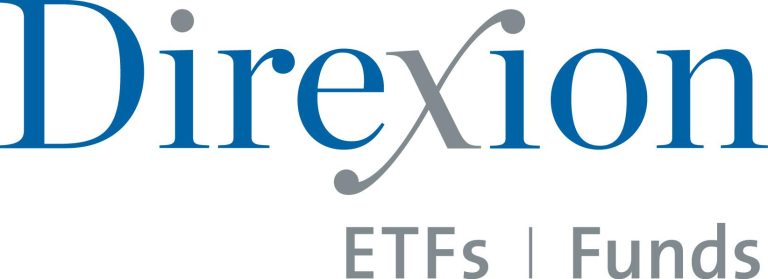
A 38-year-old father is navigating an all-too-common balancing act of full-time work, single parenting and, now, caregiving for his mother.
After a fall and early signs of dementia, his 73-year-old mom moved in. While he’s not in a financial crisis, the pressure is mounting. Between work, caring for his 6-year-old son and supporting his mom, he’s not sure how he’ll manage the situation.
On the financial side, he has to decide whether he should rent or sell his mom’s vacant condo. And emotionally, he needs advice on how to set boundaries with his mother without feeling guilty. He’s also feeling isolated as most of his friends aren’t in his situation, yet.
Don’t miss
- I’m 49 years old and have nothing saved for retirement — what should I do? Don’t panic. Here are 5 of the easiest ways you can catch up (and fast)
- Gain potential quarterly income through this $1B private real estate fund — even if you’re not a millionaire. Here’s how to get started with as little as $10
- Thanks to Jeff Bezos, you can now become a landlord for as little as $100 — and no, you don’t have to deal with tenants or fix freezers. Here’s how
His story isn’t unique. According to the Pew Research Center, a third of all Americans — and half of Americans in their 40s — are finding themselves part of the “sandwich generation” that cares for both children and parents at the same time.
Here’s what to know if you’re in a similar spot.
Find support for aging parents
Caring for a parent with early-stage dementia can be overwhelming — but you don’t have to figure it out alone. The first step is to tap into local, state and federal resources that can help reduce both your workload and out-of-pocket costs.
Start by contacting your local Area Agency on Aging (AAA). Every state has one, and these agencies can help you build a care plan, connect you with adult day programs and explain what in-home services might be available. You can search for yours at Eldercare.acl.gov or by calling 1-800-677-1116.
Next, research Medicaid and Medicare programs. (Medicare helps aging Americans while Medicaid helps low-income Americans — your parents may be eligible for one or both.) The Medicaid waiver program, for example, can help cover in-home care costs. Some of these programs even allow family members to be compensated for caregiving, which could help if you decide to reduce your hours or shift your work schedule in the future. Searching "Medicaid waiver programs [your state]" should point you in the right direction.
If you’re considering selling or renting your mom’s vacant condo to fund care, consult with an elder law attorney first. Medicaid has strict rules about assets and income, and the timing of a sale could affect eligibility and costs. An attorney can also help with important legal documents, like advance care directives or a power of attorney — both crucial while your mom is still in the early stages of cognitive decline.
Finally, organizations like the Alzheimer’s Association and AARP offer free resources, like caregiver support groups, toolkits and financial guides, that can help you understand what to expect as your mom’s needs evolve. These resources can help you connect with others in similar situations — and remind you that you’re not alone.
Read more: Car insurance premiums could spike 8% by the end of 2025 — thanks to tariffs on car imports and auto parts from Canada and Mexico. But here’s how 2 minutes can save you hundreds of dollars right now
Shore up your finances
As a caregiver and a parent, it’s easy to put yourself last. But just like on a plane, where we’re directed to put on our own oxygen mask before assisting others, protecting your financial stability is key. It’s not just for your own future, but also for your ability to keep supporting your family.
Track what you’re spending
Start by building a simple monthly budget that reflects your new reality. Include fixed expenses (like your mortgage), flexible spending (like groceries), and expected caregiving costs. Track these for a few months to get a clear picture of where you may need to adjust.
Build an emergency fund
Try to build your emergency fund slowly and consistently. The standard recommendation is saving three to six months of expenses — but your needs may be more depending on your caregiving responsibilities. Even setting aside $50 a month can help you weather unexpected costs without draining savings. If your mom’s condo eventually generates rental income, consider earmarking part of that toward this fund.
Look for tax breaks that can ease the financial burden
The IRS may allow you to claim your parent as a dependent if you provide more than half of their financial support, and you might also qualify for the Child and Dependent Care Credit if you’re paying for adult day services. A tax professional can help you find benefits you might be eligible for.
Look for financial planning support
When it comes to long-term planning, remember that you don’t have to do it alone. A fee-only financial advisor or a local nonprofit that offers free financial counseling can help you weigh the pros and cons of selling assets, applying for Medicaid and balancing short-term expenses with retirement savings.
Remember, protecting your financial and mental health is not selfish — it’s essential. Communicate clearly with other family members (if any are involved), and don’t be afraid to ask for help or delegate responsibilities. Caregiving is a marathon, not a sprint, so try to build a plan that works for everyone — including you.
What to read next
- Want an extra $1,300,000 when you retire? Dave Ramsey says this 7-step plan ‘works every single time’ to kill debt, get rich in America — and that ‘anyone’ can do it
- Here are 5 ‘must have’ items that Americans (almost) always overpay for — and very quickly regret. How many are hurting you?
- ‘Liberation Day’ just triggered a 60% chance of a US recession, warns JP Morgan — use these ‘anti-shock’ money hacks to protect yourself ASAP
This article provides information only and should not be construed as advice. It is provided without warranty of any kind.


